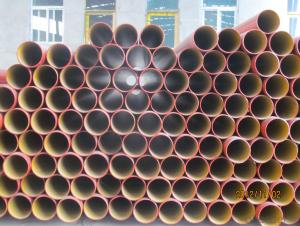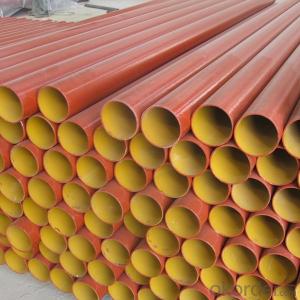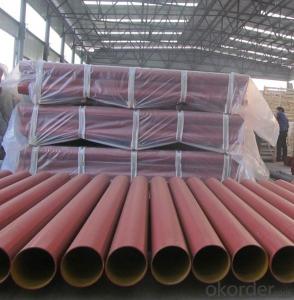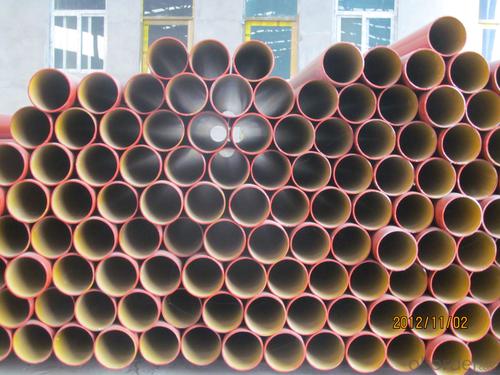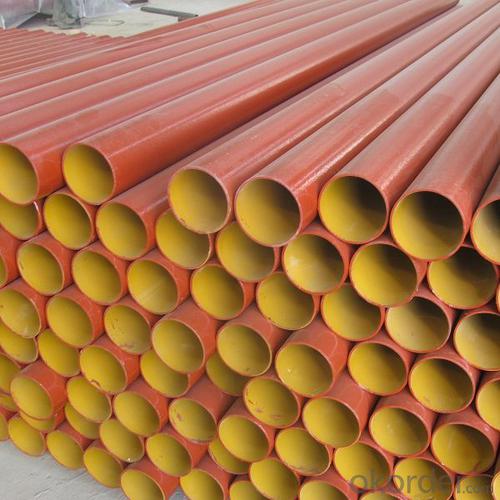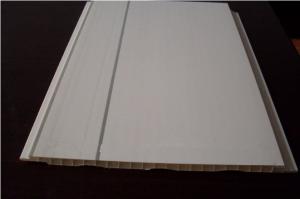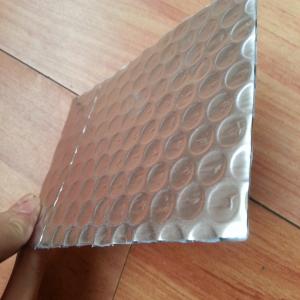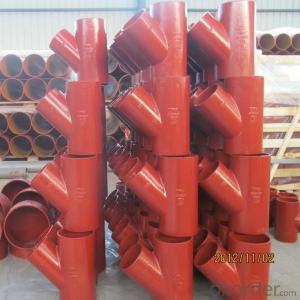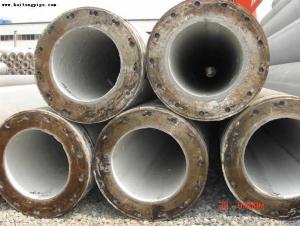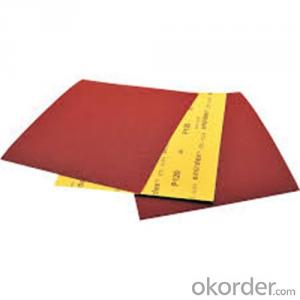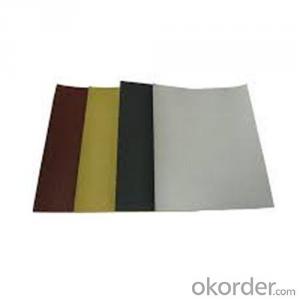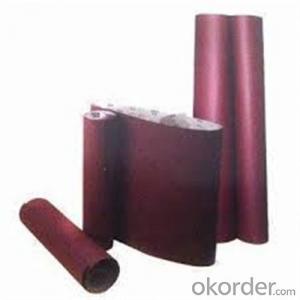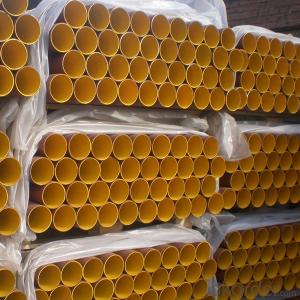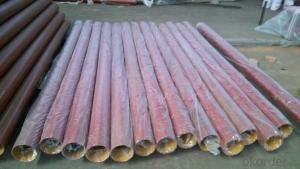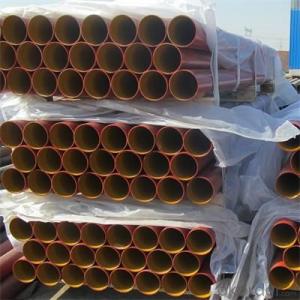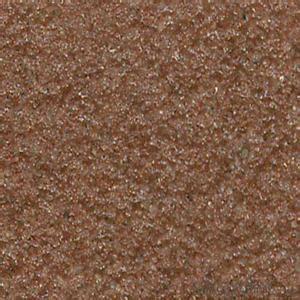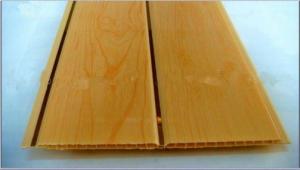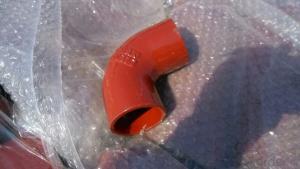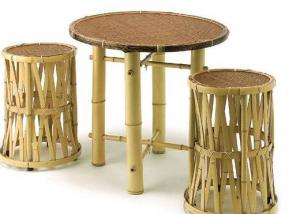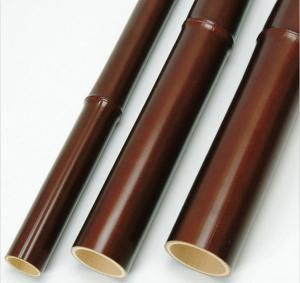DRAINAGE EPOXY CAST IRON PIPE
- Loading Port:
- China Main Port
- Payment Terms:
- TT OR LC
- Min Order Qty:
- -
- Supply Capability:
- -
OKorder Service Pledge
OKorder Financial Service
You Might Also Like
Made from 100% recyclable materials, CMAX epoxy cast iron pipe systems are not only environmental friendly, but also satisfy many properties necessary to withstand the aggressive conditions both internal and external of the pipes and fittings: these properties include its excellent resistance to abrasion, corrosion, impact and fire. CMAX also has low noise transmission compared to common UPVC drainage pipe systems. CMAX is designed as long lasting building materials.
Standard:
CMAX epoxy cast iron pipe systems with nominal size between 40-300mm comply with BS EN 877.BS EN 877 guarantees the quality of the materials, dimensions and tolerances, mechanical properties(like water pressure, tensile strength and brinell hardness) appearance, and the standard coating for the epoxy cast iron pipes, fittings and couplings.
Strength:
Iron is well known for its strength and abrasion resistance. The shape and impact strength of CMAX products are unchanged under exposure of sunlight and weathering, while UPVC and PVC pipes would soften, deform and become brittle under intense temperature change.
Quiet:
CMAX’s sturdy and dense properties reduce pipe vibration a silent drainage system.Studies had proven iron is the quietest material out of all other common drainage system.
Non-Toxic and Non-Combustile:
No toxic gas will be emitted from CMAX in the event of fire. Iron is also non-combustile,so epoxy cast iron pipes and fittings are recoverable after fire.
Anti-Corrosive:
All CMAX epoxy cast iron pipes and fittings are internally and externally finished with corrosive resistant epoxy coating to prevent fouling and corrosion. The epoxy on CMAX epoxy cast iron pipes and fittings provides an excellent exterior under humid and tropical conditions.
Coupling:
Lightweight couplings are specially engineered to guarantee a strong, quick and easy connection between CMAX pipes and fittings. Made from stainless steel with rubber gaskets, the coupling match pipe and fittings non-corrosive properties.
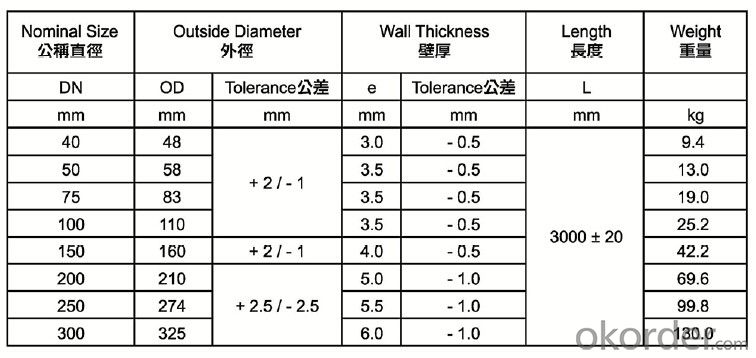
- Q: How would I go about studying for and taking the test to become a real estate dealer/salesperson? Where can I obtain the necessary books? How long does it take etc.?
- Which state? Criteria differs from state to state
- Q: Hi,I want to be a Real Estate Developer and have a bachelor's in architecture. I will be going back to school soon. What Masters program should I apply for? Have in mind I want to be a R.E Developer.What masters program will benefit me the MOST??? :)
- Real estate developers must have a wide range of skills, one of which must be financial, understanding the possibility of finding an area to develop that would be financially sound. Once found the land must be purchased and financing secured to develop the land found. Your plans, financial information must be submitted to a lender for approval. You would then hire an architect to make and draw the plans then a construction company to build the residential or commercial property. You would then hire a real estate firm to sell your completed project. Some developers would have a complete firm under one roof that would be capable of handling the entire project from the purchase of the land to the selling of the final product. My suggestion would be the financial or construction as a master program. They both are important elements in being a successful developer. There are some local schools where you could attend and after a short time, you would be able to successfully pass your state construction board test, thus securing your construction license. Finance would require time spent in the classroom, some home study or internet classes might suffice. I hope this has been of some benefit to you, good luck. FIGHT ON
- Q: so yeah im from california. im only 19 im in college for a business major but i think it would be handy to have a real estate license but also to have the knowledge and experience of a real estate agent. Im just curious about the amount of class/time needed. The amount of Test/Final Exams taken to get it. I know its different in every state im sure but im more just looking for a broad estimate i guess.Thanks for the help
- WY now not has reciprocity with any state. It's been that means due to the fact 2009 no less than. You need to meet all WY necessities adding fifty four hours of schooling in authorised colleges, and many others.
- Q: Is there anything that your real estate agent could have done better? What did they do or not do that stood out?
- When I was looking for a home 5 years ago, I contacted a realtor well in advance (I was then living in another state). We corresponded and I gave her all the specifics on when I'd be arriving to see property in her area. After my arrival, I found she had left on vacation! The nerve, and I had spent months researching the area, etc. So, her assistant was there and she showed me around, even took me back to the airport when I left! Now there was someone I wanted to do business with again...and I did, when I bought my home I used her, not her boss. So there! Basically, I find out of town realtors to be really lousy when it comes to helping out. They think just because you haven't moved yet, you won't be a client...not true of course. This has happened to me two times (not being serviced properly by agents out of town). It is very frustrating and their behavior is unprofessional.
- Q: Is it better to go through a real estate course online or through a real estate office?
- Go to real estate school.... not online!
- Q: Im 21 and this summer of 09 i want to get my real estate license for my summer break im thinking about attending champions in dallas but can i get some info like on the main courses i really need to take ?
- I don't know about Texas; I live and got my real estate license in Virginia. But what you should do is contact one or more major real estate companies near where you are. Many/most will offer licensing courses. They know the topics that must be covered; they know the hours needed to get you qualified to take the test. Many community colleges also offer the courses. One tip: Take a total immersion course. I did it over a 4-week period--three evenings a week and most of each Saturday. If I hadn't had a full-time job, I could have done it in about 10 days. There's a lot of stuff that's covered that just won't stick with you. If you spread the lessons out over, say, 4 months, you just won't remember enough. Also, there are a number of reasonably affordable (something like $69 or so) computer disk review courses. Buy them. They're slick. They really do resemble the actual test. And you can determine your strengths and weaknesses. Hope that helps.
- Q: I was considering taking fire science level 1&2 , and also paramedics to start training to be a fire fighter. On thee other hand I've always loved the thought of real estate, selling and flipping houses. I have good background in construction I can do practically anything to a house, and estimate cost of labor. I just need to know which would be a better financial decision. I live in Dayton Ohio and I'm also curious on the salaries. I know firefighters job and salaries have been at stake for a while.
- If you're taking a civil provider experiment and rent on as a firefighter, in so much towns of any dimension, with the intention to deliver you advantages, equivalent to retirement and well being coverage. You might continuously turn residences as a interest, for additional sales. Good success!
- Q: Can anyone tell me the difference between real estate agent, sales agent, broker, and realtor?Who are the people that show potential buyers houses based on their needs, host open houses, and make commission on sales?
- A real estate agent and a sales agent are the same. A broker is and agent that has passed the brokers exam and holds a brokers license. A broker can start their own office and have other agents and brokers work for them. If you are not active in real estate and are a broker, you can hold your own license. If you are an agent, you will have to have a broker hold it for you or have the state in which you live hold it for you. A REALTOR is a dues paying member of the National Association of Realtors. Most agents and brokers are REALTORS. Both agents and brokers show houses, hold open houses (what a waste of time) and make commissions based on real estate sales.
- Q: I'm thinking about getting into real estate, I wanna know is that a good career choice for someone who is currently living in Michigan? If so what is a good company to work for? Centruy 21 here is doing alot of hiring are they good or is it a catch? HELP!! ( You don't have to live in Michigan to answer, but I would love to here from an agent that has worked in Michigan)
- Yes I work as a full time real estate agent in south east Michigan, My wife and I work together. So I can say that you can make a living but it is not a normal job it is more like a lifestyle. We are always available for questions and often when something is planed RE gets in the way. If you enjoy helping people than you may like learning this trade. We are self employed allowing us to work as much or as little as we want. The Internet has changed the old ways of doing business, I do not think it will ever do away with this occupation. We can offer help from a vast pool of experience, we know how to buy or sell homes and most people do not have the time to learn. We can fix our own cars too but most of us use a mechanic. If you have the willingness to learn and work hard, currently the make a living point in Michigan is selling over 40 houses a year. I would suggest interviewing Brokers to see what the requirements and expected expenses are before choosing than find a mentor to learn from. Good luck.
- Q: Chapter 1 the very first paragraph: "Only a century ago, buyers had few protection from unscrupulous sellers real estate agents. Instead, the Common-Law doctrine of caveat emptor (Latin phrase-let the buyer beware) prevailed." I've read it several times and every new time I read it's getting more complicating; this is chapter 1 and it has not yet covered anything about common-law. Besides that I also don't understand why the author is continuing the second sentence with the word 'Instead.' I already don't like the way the author has written this book. Please help if possible.
- Are you doing this class online? Or in a class room. If you are doing it online, you are screwed. I promise you that this subject is NOT on the test and if you are in a class room setting, the teacher will tell you this. The ONLY purpose of the class is to help you pass the exam, not understand real estate. If you are doing this online, there is NO way to know what to study and what is important since you don't have a teacher to tell you. If you are trying to get your real estate lic, DO IT IN PERSON, not online or self study.
Send your message to us
DRAINAGE EPOXY CAST IRON PIPE
- Loading Port:
- China Main Port
- Payment Terms:
- TT OR LC
- Min Order Qty:
- -
- Supply Capability:
- -
OKorder Service Pledge
OKorder Financial Service
Similar products
Hot products
Hot Searches
Related keywords
